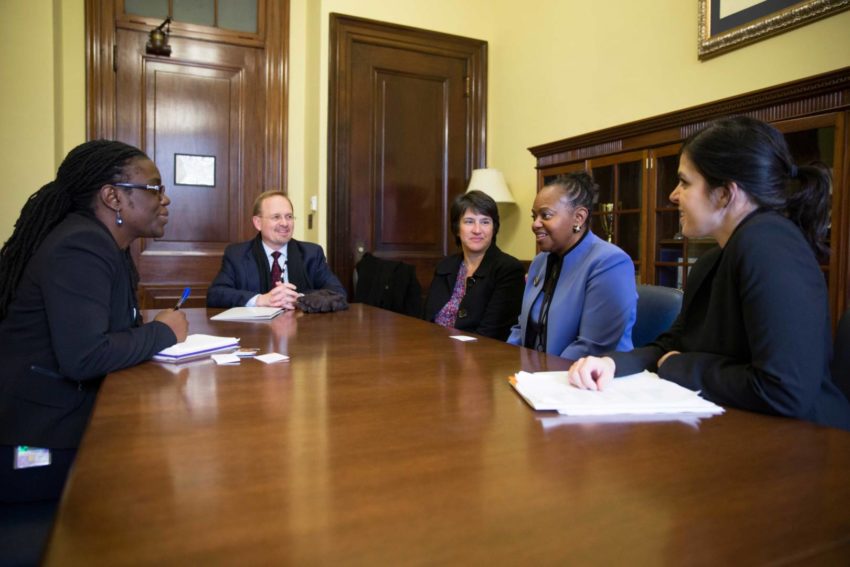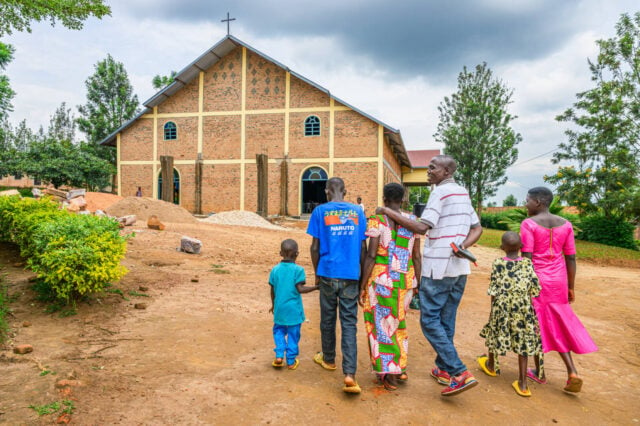Like community development and emergency response, advocacy is an essential part of World Vision’s work. As we work alongside communities to build a better world for children, our advocacy work challenges the very policies, systems, practices, and even attitudes that make it difficult for vulnerable children and families to live life — free of violence and poverty.
At a World Vision advocacy event, the Rev. Alexia Salvatierra, author of Faith-Rooted Organizing: Mobilizing the Church in Service to the World, put it this way: “We need to love as intelligently and effectively as we can. If you can feed one hungry person, you’re loving them well. But when millions are hungry, we can love them effectively by advocating for development.”
Here in the United States, World Vision approaches the government as a partner. Our advocacy team develops strategic relationships with key elected officials who can impact U.S. foreign policy on behalf of children living in extreme poverty.
But we also can’t do it without you.
As voters and constituents, your opinions matter to your elected officials.
Biblical advocacy allows you to see your legislators not as targets, but as fellow humans. You can lift them up with encouragement before lovingly reminding them that God has called them to be servants of the most vulnerable.
“Advocacy means that we’re speaking on behalf of others,” says Pastor Eugene Cho. “For us as Christians, I feel like this should be something that is really resonant with our worldview, our theology. Jesus is our great Advocate. He represents us; he speaks on our behalf.” (See 1 John 2:1.)
Many of us are exhausted by the political discourse in our country. It’s hard to step into that messy scene and use your voice for change. But that’s why God is your Partner in any advocacy effort—he is with you.
“I don’t really like politics, but I understand that’s just part of how our systems work,” Eugene says. “Politics informs policies, which will ultimately impact people. People really matter to God, and as a result, we have to engage in the political process.”
When you answer his call to speak on behalf of the marginalized and the oppressed, you’ll have the Holy Spirit to encourage and strengthen you during every letter you write, call with your senator’s office, or meeting with your representative.
Scripture is full of stories that exemplify God working alongside advocates. Once you know firsthand the nervousness of planning to meet with a leader — the diligent prayer and preparation that happens before a call or meeting and the peace that comes when your task is finished, regardless of the outcome — these stories of people like Esther, Moses, Daniel, and others become instantly relatable.
Remember that before her noble advocacy, Esther was an orphan living with her cousin, Mordecai, among Jewish exiles. Moses was one of many Hebrew newborn sons ordered to be killed until he was saved by his mother and adopted by the Egyptian royal family. Daniel was one of a group of Israelite youths taken captive to serve a king. They’re all proof that God uses ordinary people (like all of us) to do extraordinary things.
And these extraordinary things come in packages both big and small. You can take simple steps to become an advocate for those around you or write a letter to your representative. Maybe God wants you to take a big step and meet with your congressional representatives. Maybe your meeting with a senator is the one that moves his or her heart toward the issues that affect children living in extreme poverty. It could be a step toward helping children experience better lives around the world — including your own. Or maybe the meeting doesn’t work out like you hope, and it’s a simple reminder for you and your family that speaking up on behalf of others is not only worthwhile, but what God calls us to do.


